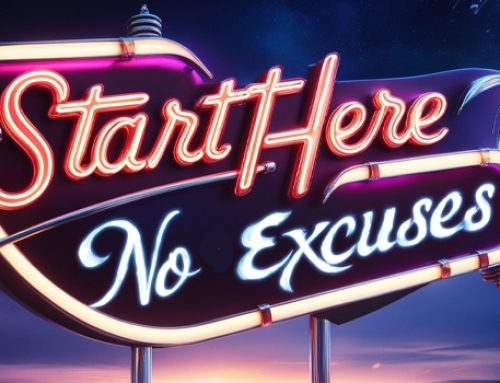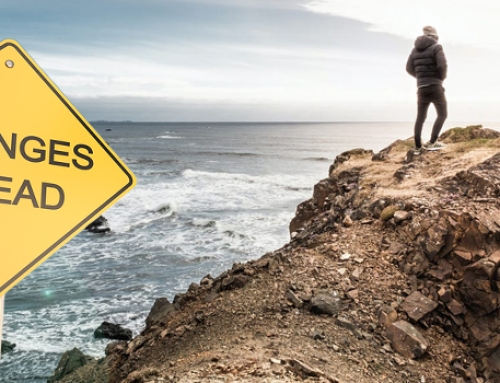Lessons from the past tend to save us all a bit of pain and and spare us a world of hurt. Most of those in our communities and even in our very own families are not even thinking about last week let alone what happened in the near or far past. This myopic erroneous view of the world economies of the past, in our  present, and most assuredly what all these economic factors are pointing to in the near future will come to most as a very rude awakening once set into motion. And in motion they certainly are, ready to pounce on the unsuspecting who are asleep to what can be on the horizon for all of us.
present, and most assuredly what all these economic factors are pointing to in the near future will come to most as a very rude awakening once set into motion. And in motion they certainly are, ready to pounce on the unsuspecting who are asleep to what can be on the horizon for all of us.
Most of us self-reliant types appear to have a common trait: they we are keen at evaluating the potential risks (whatever they may be) then moving to mitigate those risks in a determined manner. Simply put, we are looking for the proverbial “writing on the wall” so we can aptly evaluate a situations (close to home and abroad), make a plan, learn from it, and ultimately act to minimize the impact of it on our lives.
Anyone paying enough attention on what is happening on the world stage has got to see that with all these societies becoming more and more unraveled that there is quite a bit of austerity and sacrifice that is on the horizon. We need to be diligent in our watch and preparation. With my disaster preps more or less in order, I want to ensure that my own household will get through a period of difficulty when, for instance, there is not enough electricity, water, food, work, or money to go around.
It is time to ask yourselves…
Am I Ready for the Upcoming Hard Times? Here’s 10 Things You Can Do Now
1. First and foremost, you need to get yourself geared towards the spiritual and mental battle that will be placed upon us.
The times are not going to be well for those unwilling to “Gird Up their Loins” or for the faint of heart. Resiliency, and adaptation is key to your successful navigation through the monetary and goods collapses ahead. You need to be square with your God as you understand Him to be, and that you can at least call on a higher Providence to give you strength through it all and for a little miracle here and there. Having hope for your future, however bleak it may look right ahead is the essence of being left standing after the whirlwinds blow their darnedest.
2. Take care of major or minor health concerns now
Let me tell you, when things get harder to get access to in the future you will be glad you did this. Get your teeth cleaned and take care of any dental work that needs to be done. Any health problem lingering? Get in now and get it healing properly right away. Medical help and medicines will be the first things that will become inaccessible to the average joe. If there is a medical procedure you have been putting off, do so now. Are you overweight and in poor physical shape? Cut out sweets for awhile and start walking to build your stamina.
3. Accumulate cash and store it securely where only you know where, preferably in small denominations
With the overwhelming debts that are being piled up by the leading countries of the world, and unsound monetary policy the norm the last decade, a full fiscal collapse of currencies are inevitable across the globe. There has to be a reset. Physical possession of cash, especially in the first weeks of such a large event will be invaluable. No silly, I don’t mean that you should store piles of cash under your mattress Rather, you will want to store cash, as well as other items you can use for currency, in some well-hidden places where you can get to it in secret, if needed.
What else other than cash? Consider burying commodities, like a supply of heirloom seeds, well sealed in Mylar bags, or any items that will be “essential” when distribution channels of goods completely fall apart.
4. Practice haggling and the art of barter for goods and services
A good place to start is at flea markets or thrift shops. You might not think it, but there is an art to doing so successfully. There are even Bartering Communities that are set up on social platforms right now that you can get some practice on. This would mean that you would also need to have something, or be expert in producing something that someone else may need or want. If you don’t have any skills that way or have little practice in something that others may want, get started today. Because when cash (physical or digital) becomes worthless, and it will, you will need something to fall back upon.
For many, this will take you outside of your comfort zone so start modestly and work your way up toward more sophisticated barter transactions.
5. Learn to cook from scratch using bulk foods from food storage
It is always nice to go out to a restaurant and get your meal at a reasonable price. But when the hard times hit, that will become a foggy memory. Even highly processed foods will become a thing of the past, when mass production comes to a screeching halt. Learning now how our ancestors put their daily meals on the table will be a skill many will envy when push comes to shove.
Without question, beans, rice, oats, wheat and the like are going to be the cheapest food storage items out there. Rather than shun them because you don’t eat them now, learn to prepare them in such a way that they become palatable to your family. For very little money, you can store a year’s worth of bulk foods. Perhaps they will not be as tasty as a juicy hamburger, but you will not starve.
6. Keep your vehicles in top working condition and always top them off with fuel and fluids
A vehicle does not have to be a shiny new model in order to function well. As a matter of fact, part of “blending in” and not make yourself a target of thieves means you will have an older vehicle but one that is well taken care of.
Well maintained and fixable with the minimal knowledge or supplies is the best way to et from place to place in a timely manner.
7. Take care of home repairs yourself that have been on the deferred maintenance list forever
In the past, finding housing was relatively easy to do. Getting a roof over your head was, even if it was made of tin was a question of having a little more effort than usual. Current living situations may be quite different this time around. Living in make-shift shelters, tents and vehicles may become the norm. Whatever the choice of shelter may be, you will need to have the talent to fix what becomes broken. So, don’t be afraid to get your hands a little dirty now, so you can have the know-how later.
All of those little things around the house that have been put off may be an mere annoyance now, but down the road? Anything and everything in disrepair can and will come back to haunt you.
8. Make arrangements with others in your community just in case
This is a two way street. If something should happen and you could not live in your home, where would you go? It would be nice to have a reciprocal arrangement with family or friends, know who you can count on when the hard times come a’callin’.
Set up arrangements with friends and likewise, prepare your small home with those things that will be needed in the event your compadres and their families need a place to stay.
9. Learn how to become the local handyman
One way of getting through the hard times is to make yourself as indispensable as possible. Being able to be handy with a hammer or saw is a great way of doing just that.
Diversify what you can build, maintain or fix. So that you can have a wide variety of skills to offer others for true bartering purposes.
10. Practice blending in and looking normal and nondescript
The beginning stages of this turmoil, even if you are normally reclusive and keep to yourself, get out in the community and be seen. Don’t et to flashy or sassy and look ordinary. The point is that you want to be seen as a “regular” but not noticed because you appear different or worse, as a stranger to the community.
The Overall TakeAway
You don’t have to fret or worry when you are able to take the first steps BEFORE events start their uphill climb. And as they start rolling in the downhill momentum you will be able to steer clear of the obvious obstacles that come into view. As cliche as it may sound, it is a lifestyle choice that will provide insurance against disruptive and possibly catastrophic events. Let us take control of our future and prepare for hard times. They may, or may not occur, but at least we will be ready.






